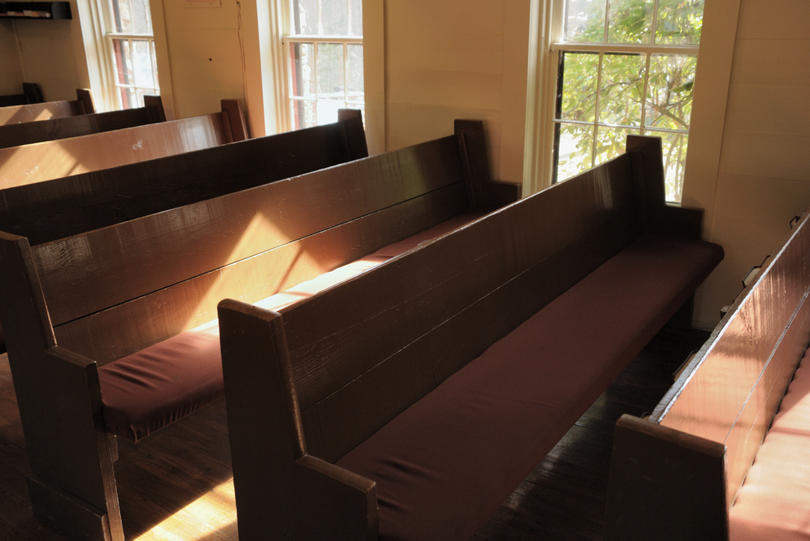According to the United Nations, a society is considered "aging" when the population aged 65 and above constitutes more than 7% of the total population, and it is deemed "aged" when it surpasses 14%.
In City M, there is a church with over 60 members, and the average age is approximately 64.4 years old. This indicates that the proportion of members aged 65 and above exceeds 14% of the total congregation. Some churches not only have an aging congregation but also aging pastors and workers. The challenges in rural churches are even more pronounced, with some churches lacking even enough personnel to preach at the altar.
In another church in the same city, apart from two pastors born in the 1990s, most of the serving workers, especially members of the choir, are in their seventies and eighties.
As a result, some pastors are dedicated to finding young people and exploring how to attract more youth to the church and better serve and retain them, but the results are not very optimistic. On the other hand, some pastors believe that while young people can indeed bring strength to the church, it's worth considering whether every church should focus on attracting young people at present. For rural churches, which already have few young members, it is not worthwhile to divert a significant amount of effort towards them at the expense of the pastoral care and evangelism of elderly believers. "The situation of the elderly is more urgent, as they need the gospel the most," said one pastor. Caring for those who remain in the church was a God-given mission, and many elderly people who hadn't yet received the gospel were in greater need of it, he added.
In response, some churches are transitioning to focus on the elderly. As mentioned earlier, the church in City M has a relatively small congregation, whose average age is over 60. The leader of the church is Pastor Y, who is relatively young and used to be concerned about the aging state of the church. He tried hard to nurture young people in the church, but the results were not ideal, and he had experienced moments of despair regarding the church's development.
Pastor Y is also a teacher at a training center who frequently travels to diverse places to learn. He attempts to promote the care of the elderly in the church. For example, during the regular Wednesday and Friday worship services, he adds more interactive elements for the elderly, sharing sermons while also listening more to the voices of the elderly. In terms of ministry, they increased visits to the elderly, organized health seminars, and introduced various preventative programs for common health issues.
Recently, they have also planned to launch a theme study on "How to Age Gracefully." This aims to liberate the elderly from their traditional lifestyles and replace them with new ones. Y mentioned that in their hometown, people in their eighties are still in good health and can help their children with household chores and caring work for their grandchildren. However, this often leaves little time for gatherings. There is a female believer in the church who is in her seventies and has been volunteering at the church for decades. She has been helping her children with household chores and taking care of her grandchildren since her fifties, so she is too busy to attend Sunday worship.
"Being this busy is not quite normal," Y remarked. He visited the elderly Christian and found out that it was not her children who could not do without her assistance; it was the elderly person who could not let go of her responsibilities. Y mentioned that often, it was not that the children truly needed their elderly parents' help. It was just that the parents had grown accustomed to this lifestyle, as helping their children with chores might be the only thing they felt they could do, and that made them still feel needed. Gradually, the children accepted their parents as "servants" and their help, but the elderly individuals were not happy doing it, Y continued.
"Elders should learn to let go of many things." When focusing on the elderly, Y found that many of them did not have a life of their own; their sense of purpose in life revolved around their children. Therefore, he counseled the aged female believer, saying that elderly people should learn to let go of responsibilities that do not belong to them and live a more fulfilling life.
The theme study on "How to Age Gracefully" offered by the church is specifically for elderly volunteers aged 70 and above who still have the energy to serve. It aims to break them out of traditional lifestyle patterns and lead them to live a healthy, quality life centered around God's service. "Now this senior Christian woman comes to the church to serve every day and is especially joyful," Y said.
- Translated by Abigail Wu












